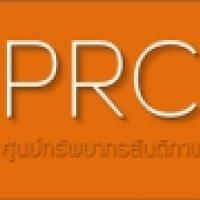แนะนำโดย นางสาวซุกกรียะห์ บาเหะ
ศูนย์ทรัพยากรสันติภาพ

This textbook provides a comprehensive overview of different methods and sources of information-gathering for peace and conflict students and researchers, as well as the challenges presented by such work.
Research on conflict-ridden societies carries special challenges for the collection and evaluation of information about the conflict and its actors. First, due to the nature of information emerging, incentives to misrepresent and propaganda is common. News coverage is sometimes poor and reporting is often incomplete, selective and biased. Second, the sensitivity of the topic and the questions posed in peace and conflict research means that access to and the security of informants can be a problem.
Peace and conflict research as a discipline encompasses a number of different approaches for obtaining empirical information which serve as a basis for analyzing various research topics. This book provides a comprehensive overview of different methods and sources of information-gathering for students and researchers, as well as the challenges presented by such work. It offers:
· tools for evaluating sources and information
· suggestions on where different types of information can be found
· advice on using different types of sources, including news reports and written narratives
· practical guidelines for constructing large-scale datasets
· insights and guidelines for comparative fieldwork, in-depth interviews, focus groups, and surveys
· reflection and discussion on important ethical concerns in peace research
This book will be of much interest for students and researchers of peace and conflict studies, conflict resolution, war and conflict studies, development studies, security studies and IR, as well as for NGO workers/researchers.

In recent decades there has been increasing attention to mass atrocities such as genocide, war crimes, crimes against humanity, and other gross human rights violations. At the same time, there has been a vast increase in the number of academics and researchers seeking to analyze the causes of, and offer practical responses to, these atrocities. Yet there remains insufficient discussion of the practical and ethical challenges surrounding research into serious abuses and dealing with vulnerable populations.
The aim of this edited volume is to guide researchers in identifying and addressing challenges in conducting qualitative research in difficult circumstances, such as conducting research in autocratic or uncooperative regimes, with governmental or non-governmental officials, and perhaps most importantly, with reluctant respondents such as victims of genocide or (on the other side of the coin) war criminals. The volume proceeds in five substantive sections, each addressing a different challenge of conducting field research in conflict-affected or repressive situations:
o Ethics
o Access
o Veracity
o Security
o Identity, objectivity, behaviour.
This important text will be vital reading for students, scholars and researchers in the areas of research methods, international relations, anthropology and human rights. It will also be of keen interest to policy practioners and NGOs, and especially relevant for those working in the regions of Africa, Latin America, and Asia.

